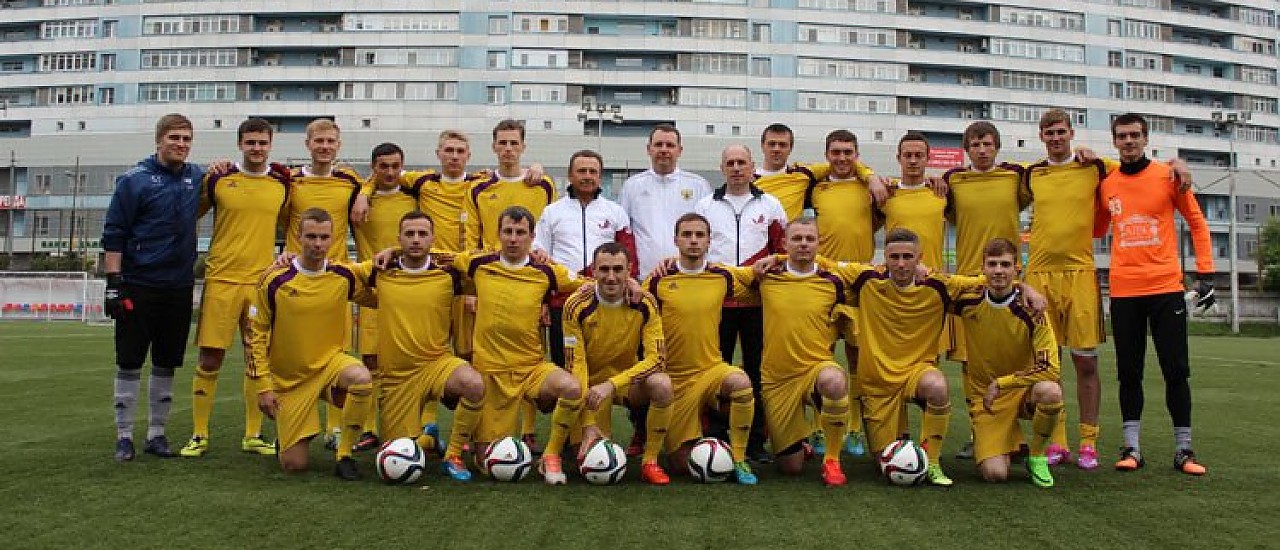RusDeutsch
The selection "Rusdeutsch" is representing the German speaking minority in Russia. The term Germans of Russia stands for German immigrants who came to Russia within the course of several centuries and settled there. They lived spread over several regions of the Russian Empire. According to their place of settlement they were called Volga, Black Sea, Crimean, Caucasus- or Siberia Germans. The russification measures from 1870 to the beginning of the 20th century led to an emigration of about 300,000 Germans of Russian to North- and South America until 1912. Because of the high birth rate, this was hardly affecting the strength of the ethnic group, but the number of Germans in Russia increased until 1914 to 2.4 million. The two World Wars, in which Germany and Russia faced each other as enemies, brought hard times for the Russian-Germans. They were regarded as "potential traitors". In consequence, the use of the German language in public was forbidden, property expropriated and residents deported to Siberia. During World War II, the Invasion of Russia worsened the situation even further. Various government interventions destroyed the structures in the village life, even entire villages and with them the distinct culture of the Germans in Russia were destroyed. In 1948 the Supreme Soviet announced that their banishment should apply "for ever". Only in 1964 the Germans of Russia were rehabilitated by decree. In those years a repatriation back to Germany was already ongoing. Many German Russians returned back to the Federal Republic, slightly less found in the former GDR a new home. Currently approximately 0.41% of the total population of Russia are Germans. The International Federation of German culture (IFGC) is the oldest society of the Germans in Russia; it holds the seat in Moscow and the sections in the Altai Mountains and in Omsk, where with nearly 350,000 the majority of the approximately 600,000 Russian Germans are living. The association strives to preserve the traditions, the care of the German language and the promotion of social life. With the "Moskauer Deutsche Zeitung " (MDZ), an own newspaper revived after the collapse of the Soviet Union. Currently it is published twice a month and is in excerpts published on the Internet. It informs regularly and extensively on cultural and political developments in Russia and documents all activities relating to the German speaking minority. Among other stuff, it provides even information of the EUROPEADA and current developments. “Rusdeutsch” is the farthermost selection, going to participate at the EUROPEADA 2016. Its largest city Omsk, located on the border with Kazakhstan, is 4,300 km distant from South Tyrol.
Rusdeutsch at the EUROPEADA
The selection participated at the EUROPEADA for the first time in 2012 and had achieved a 7th place.
The squad for the 2016 EUROPEADA
Alikhan Baitcaev (Wladikawkas), Andrei Buller (Region Krasnojarsk), Alexey Vigul (Krasnojarsk), Ivan Vigul (Krasnojarsk), Artem Gafner (Oblast Tscheljabinsk), Aleksandr Genze (Omsk), Vladimir Gerdt (Krasnodar), Ilya Gerdt (Jaroslawl), German Darkov (Krasnodar), Timur Dzebisov (Moskau), Denis Dmitrovich (Oblast Moskau), Yury Litke (Omsk), Sergei Paniugov (Kazan), Roman Repp (Omsk), Konstantin Takoev (Wladikawkas), David Togoev (Wladikawkas), Vladislav Tcengler (Region Krasnojarsk), Nikolai Sharlapov (Krasnodar), Artur Shleermakher (Omsk), Andrei Shreiner (Novosibirsk), Ilia Shtein (Tomsk), Petr Yanzin (Vladivostok)
Andrej Rotermel (Cheftrainer), Vladimir Shved (Co-Trainer), Alexey Zemlyanukhin (Co-Trainer), Natalia Altner, Aleksandr Rotermel, Robert Lipskiy, Pavel Ekkert, Oleg Shtraler, Genrikh Martens, Olga Martens (FUEN Vize-Präsidentin)








